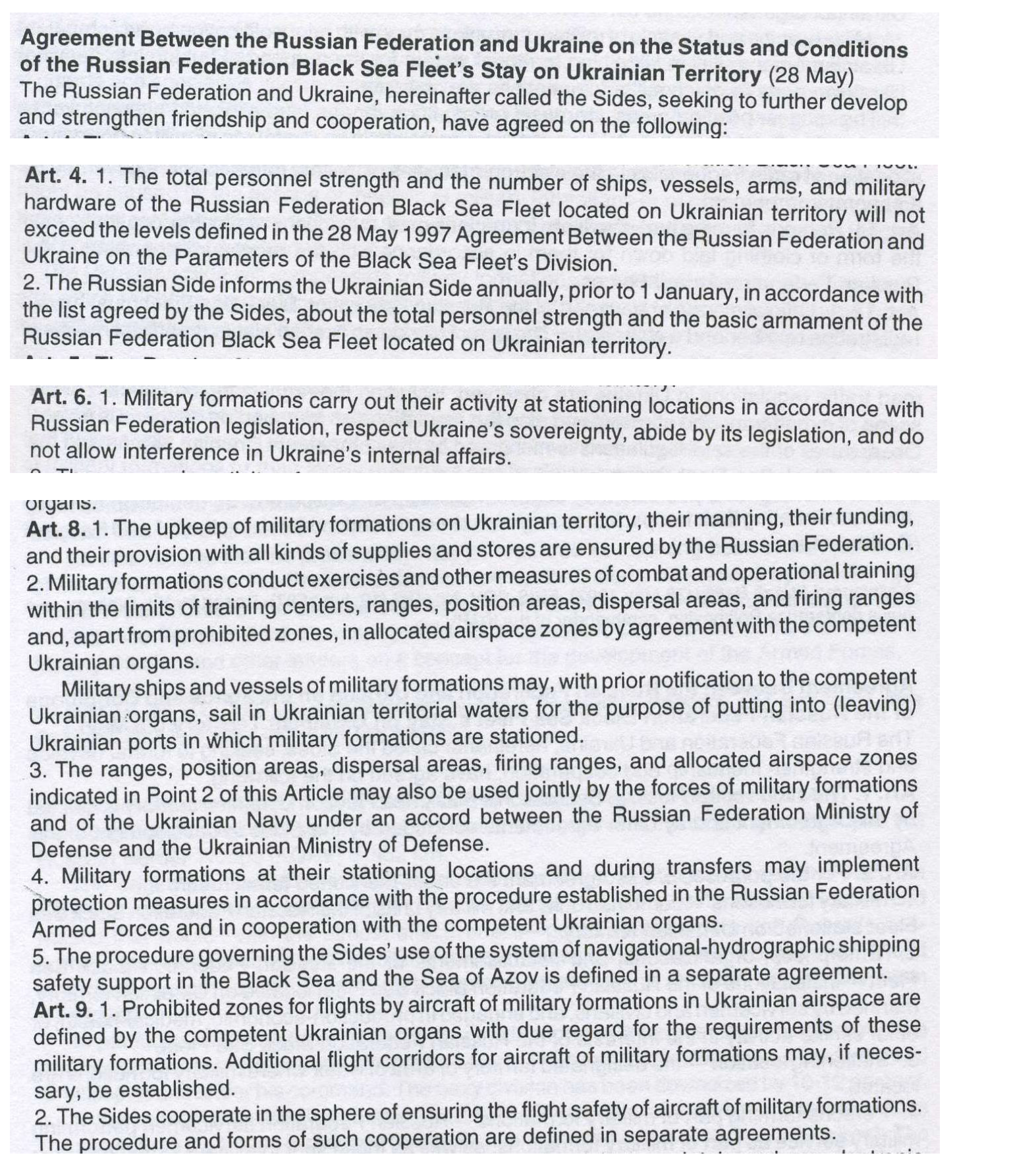Here's something to chew on:
Russia’s UN ambassador, Vitaly Churkin, apparently cited a 1997 treaty between Russia and Ukraine as a source of authority for Russian troop movements in the Crimea:
We have an agreement with Ukraine on the presence of the Russian Black Sea fleet with a base in Sevastopol, and we are acting within the framework of that agreement.
The treaty, called Agreement Between the Russian Federation and Ukraine on the Status and Conditions of the Russian Federation Black Sea Fleet’s Stay on Ukrainian Territory, was extended in 2010. Through the heroic efforts of the University of Chicago law librarian, Lyonette Louis-Jacques, I have gotten my hands on an English translation of that treaty. (The Russian version is available on the web, and you can use Google translate on it if you dare.)
As has already been reported, the treaty unsurprisingly does not give Russia the authority to conquer the Crimea. Nor does it give Russia the discretionary authority to move troops around the Crimea. It gives Russia the authority to locate troops on its bases in the Crimea, and to move them between those bases and Russian territory. But the troops must follow Ukrainian law and respect Ukrainian sovereignty. I paste some of the relevant articles below.
Taken from J.L. Black, ed., Russia & Eurasia Documents Annual 1997: The Russian Federation, vol. 1, p. 129 (Academic International Press, 1998).
